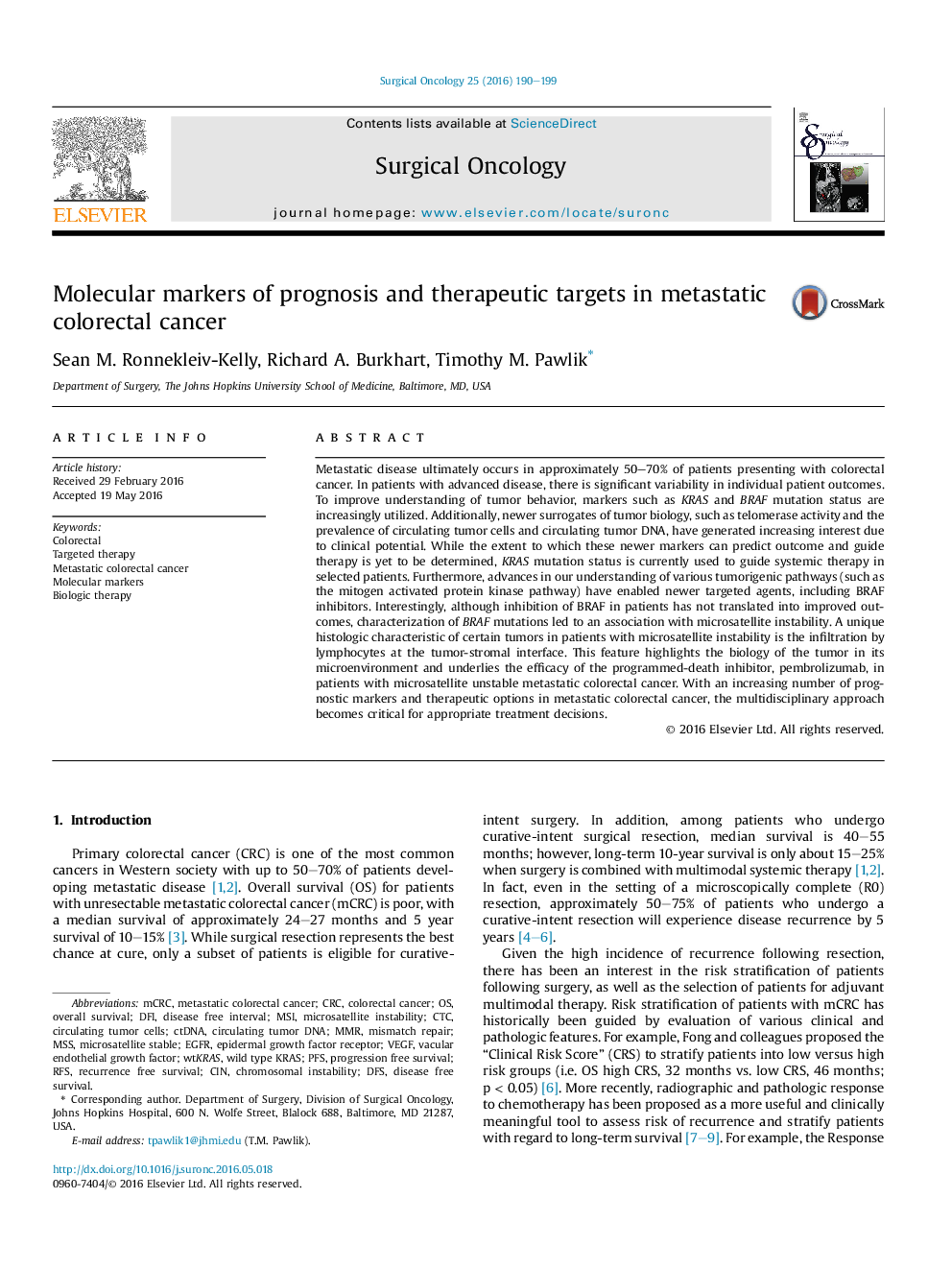| Article ID | Journal | Published Year | Pages | File Type |
|---|---|---|---|---|
| 6193836 | Surgical Oncology | 2016 | 10 Pages |
Metastatic disease ultimately occurs in approximately 50-70% of patients presenting with colorectal cancer. In patients with advanced disease, there is significant variability in individual patient outcomes. To improve understanding of tumor behavior, markers such as KRAS and BRAF mutation status are increasingly utilized. Additionally, newer surrogates of tumor biology, such as telomerase activity and the prevalence of circulating tumor cells and circulating tumor DNA, have generated increasing interest due to clinical potential. While the extent to which these newer markers can predict outcome and guide therapy is yet to be determined, KRAS mutation status is currently used to guide systemic therapy in selected patients. Furthermore, advances in our understanding of various tumorigenic pathways (such as the mitogen activated protein kinase pathway) have enabled newer targeted agents, including BRAF inhibitors. Interestingly, although inhibition of BRAF in patients has not translated into improved outcomes, characterization of BRAF mutations led to an association with microsatellite instability. A unique histologic characteristic of certain tumors in patients with microsatellite instability is the infiltration by lymphocytes at the tumor-stromal interface. This feature highlights the biology of the tumor in its microenvironment and underlies the efficacy of the programmed-death inhibitor, pembrolizumab, in patients with microsatellite unstable metastatic colorectal cancer. With an increasing number of prognostic markers and therapeutic options in metastatic colorectal cancer, the multidisciplinary approach becomes critical for appropriate treatment decisions.
